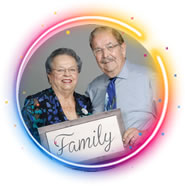3 minutes reading time
(588 words)
FLEXIBLE LEARNING
 “Learning” is an interesting and complex process. All living creatures learn as they grow and mature. If you think about that process, it’s easy to recall watching your pets learn to find food, chase toys, or hide from you when you are looking for them. Also think about yourself or your children as you learned to walk, talk, play, read, and even think and make decisions.
“Learning” is an interesting and complex process. All living creatures learn as they grow and mature. If you think about that process, it’s easy to recall watching your pets learn to find food, chase toys, or hide from you when you are looking for them. Also think about yourself or your children as you learned to walk, talk, play, read, and even think and make decisions.
So learning is really gathering information or experiences to make, hopefully, excellent decisions. Where are those decisions made? All decisions originate in our brain and transfer to the muscles, organs, and emotions to protect us and help us survive. Yes, some reactions appear to develop naturally through our genetics, but we develop and learn most of them as our brains and ourselves mature.
And how do we learn? As I look back on my own life, I see that I first learned basic young knowledge from my parents and siblings. Sure, grandparents were also influential, but my daily “education” for my first few years was family provided. I trusted them—they were my protection and providers of food, fun, and safety. Then I went to school and again I started learning from my teachers—the great ones and the not so great ones. I trusted them also—they were professional teachers, and they had more knowledge than I had.
Possibly many of you also attended a faith school system—and you also received faith education woven into you’re your basic knowledge of language, science, history, mathematics and other classes. Again, you also enjoyed and trusted your favorite teachers—they probably endorsed and added to your faith knowledge received from your family.
Unfortunately, most faiths also encase their sharing of knowledge shaped and fenced with each faith’s interpretations and boundaries. Young minds are easily influenced and accepting of those teachings. They are inexperienced with life and, probably, have encountered no reason to question what they been taught. They also trust their families and teachers. And, please don’t blame those folks; they also honestly and humbly believe what they were taught and are just passing on what they learned.
Trusting, honest, and caring brains have been programed with subtly distorted information—and neither the teacher nor the receiver realizes it until additional information is discovered and accepted which conflicts with “old” knowledge.
I was raised in a scientific family atmosphere and my geology father taught me early that understanding science and our world will constantly change as flexible-brained people make new discoveries yielding updated new knowledge.
So, as you read this article, I challenge you with, “How flexible is the learning part of your brain?”
Jumping ahead many years—in my third year of engineering college, my brain was being challenged in an advance mathematics class where the professor placed complex equations up on the whiteboard with many unknown variables. Then he would magically manipulate those “unknowns” and solve the equation. One day in frustration after he solved a complex equation I raised my hand and barked, “How do I know what I don’t know?”
He stared at me, and I thought I was probably failing his class. Then he went to the whiteboard and wrote my question—“How do I know what I don’t know?”—he put a box around that question and wrote “save” so the janitor wouldn’t erase it—it stayed there the rest of the semester. I think I passed that course because I had the best question.
So I honestly and humbly ask each of you—how do you know what you don’t know?
Stay Informed
When you subscribe to the blog, we will send you an e-mail when there are new updates on the site so you wouldn't miss them.
